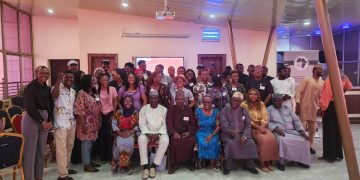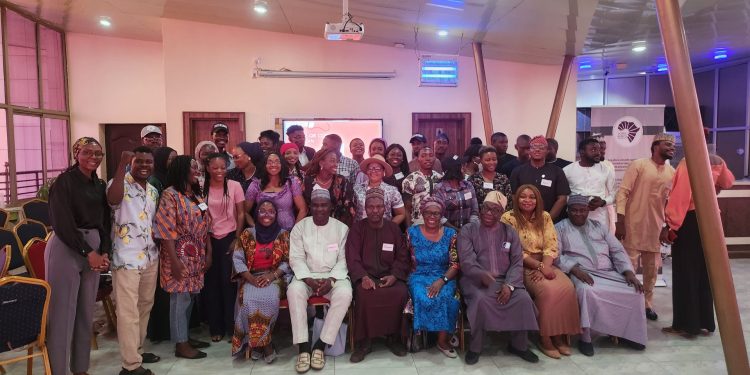By Ere-ebi Agedah
Abuja, Nigeria – A group of young climate change stakeholders from across the country converged in the nation’s capital for a one-day policy dialogue aimed at increasing awareness and examining government policies on the issue.
The event, hosted by Surge Africa, brought together youth from various backgrounds to call for collaboration and active participation in critical climate governance.
“Climate change is a global problem, but it is also a local problem, and it is one that affects young people the most,” said Nasreen Al-Amin, Founder of Surge Africa.
“We must work together to ensure that young people have a voice in the decisions that affect their future.”

During the dialogue, the youth urged government officials to take necessary measures to mitigate the adverse effects of climate change in the country.
They emphasized the importance of adequate arrangements and collaboration between the government and youth in addressing this pressing issue.
Speaking to journalist on the sideline, Founder of Surge Africa Nasreen Al-Amin explained that although the government has embarked on a lot of efforts as regards climate change, the efforts are not enough noting government must begin to support efforts of civil society to make it impactful and long term.
On the upcoming election, Al-Amin insisted that whoever the populace elects should be aware of the issues surrounding climate change stating that it will be a treat if not properly handled.
‘’As young people we are saying that we want you to engage with us, we want youth deliberations, we want youth driving change. We are a youth-led organization and we have brought youths from around the country because we really wanted to encourage youth inclusion and promote youth leadership in governance spaces” She said.
Al-Amin called on government to begin to drive institutional change adding that government should work in collaboration with relevant stakeholders to institute programs that can drive strategic change.
Also, Acting Director Resource Mobilization and Partnership building, National Agency for the Great Green Walls, NAGGW Mr Isah Abubakar Sadiq stated that NAGGW through its mandate is working to combat desertification and land degradation adding that It also provides essential support for communities to adapt to climate change.
He explained that NAGGW is passionate about the sustainability of the environment and has engaged stakeholders at different levels to educate and increase awareness on climate change.
Dr Kabir Ibrahim Getso, Kano state commissioner of Environment explained that the state government has a lot of programs to include proper waste management, planting of trees and use of energy effective cooking tools.
Furthermore, the policy dialogue also discussed efforts to “Mobilize local and state governments to foster collaborations with state actors towards impactful climate adaptation practices/measures
“The need for key stakeholders to promote community mobilization; movement building, while advancing finance opportunities for climate justice”.
Surge Africa also noted that it intends to continuously support youth and youth initiatives to strengthen activism from a youth perspective and to engage in governance processes that ensures interest and rights of not only Nigeria’s youth population, but the general public is protected.
When examined from economic, financial and security perspectives, climate change is a socio-economic, political and diplomatic crisis, Surge Africa remarked.
It expressed displeasure that social systems are collapsing, citizens trust in government wanes, even as most defining crises of the moment remain largely unaddressed, development for which it says workable frameworks should be formed as pathways to build resilience.
“As climate change continues to compound on existing crises like food insecurity, water scarcity, climate migration, and social security, the Policy Convergence space will serve as a platform that brings together key actors in the climate sector to unpack risks, drawbacks and opportunities for climate governance in Nigeria through expertise, shared experiences, conceptualization of ideas and new thinking around how we should interact with and design pathways that truly address the risks of climate change”, the summit observed.
This policy dialogue serves as a reminder that the fight against climate change is a collective effort and that the government must collaborate with the youth in order to achieve success.




































